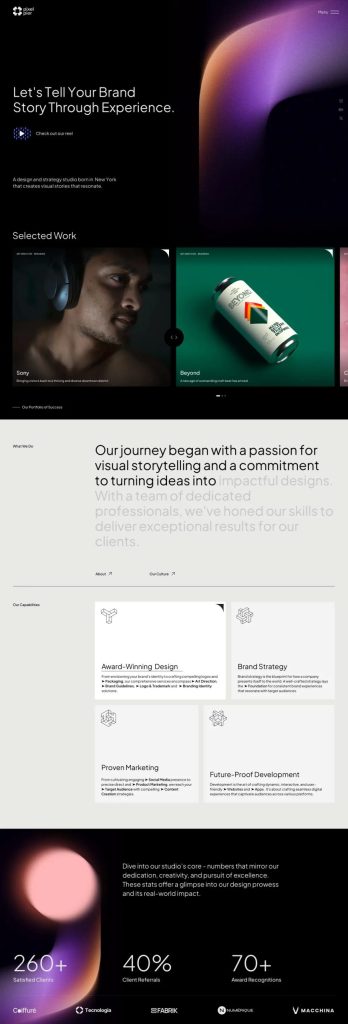As we step into 2024, the field of Artificial Intelligence (AI) continues to evolve at an unprecedented pace. Major tech giants and small startups alike are launching sophisticated models and innovative tools aimed at transforming various industries. This article discusses some of the notable advancements in AI, including the release of powerful new large models, practical tools and APIs, emerging technologies for specialized use cases, and novel products tailored for sectors such as healthcare, business automation, and education.
**The Rise of Google Gemini 1.5 Pro**
One of the most significant recent advancements in AI is the release of Google Gemini 1.5 Pro, a large language model known for its superior multimodal capabilities. This advanced model integrates various types of data—text, images, and audio—allowing for richer interactive experiences. As noted in a report by *TechCrunch*, the Gemini 1.5 Pro model includes features enabling extended context understanding, which allows it to maintain the context of conversations over longer interactions. This development is essential for applications that require continuous dialogue, such as virtual assistants and customer service bots that improve user experience through more natural Conversational UX Design.
The multimodal capabilities of Gemini 1.5 Pro expand its usability beyond mere text-based interactions. It can process visual inputs alongside textual data, enabling applications in fields such as advertising, where visual content plays a significant role. As a result, marketers can deploy more engaging and interactive campaigns by leveraging AI to analyze customer preferences derived from both visuals and text. This capability will likely position companies that adopt these tools at an advantage in an increasingly competitive market.
**Innovative APIs and Tools for Diverse Industries**
2024 has seen a surge in advanced tools and APIs designed to harness the power of AI across various sectors. New applications, including specialized API integrations for real-time data analysis and automated reporting, have emerged. For instance, *OpenAI’s API* allows businesses to integrate the capabilities of its upcoming large models, making it easier for organizations to automate tasks that previously required human intervention.
A prime example is the integration of AI in Online Learning and Development Platforms. Companies like *Udacity* have leveraged AI to personalize learning experiences based on user engagement and performance data. By utilizing APIs that analyze user behavior, these platforms can recommend tailored learning paths, making education more accessible and effective for diverse learner profiles. This not only enhances the learner’s experience but also ensures a better return on investment for organizations that are investing in reskilling their workforce.
Moreover, tools such as *Zapier* have integrated AI features to automate workflows, enabling users to create complex automations with little to no coding. This makes it easier for businesses to streamline operations, improve efficiency, and reduce overhead costs associated with manual processes.
**Addressing Specialized Use Cases: Debiased LLMs**
As AI technologies continue to proliferate, the demand for more reliable and debiased large language models (LLMs) has surged. Companies like *AI21 Labs* and *EleutherAI* have focused on developing models that reduce bias in AI outputs, which is crucial for maintaining ethical standards in automated systems. The release of these debiased LLMs represents a significant step towards ensuring fair representation in AI-driven decision-making processes.
These advancements are especially critical in sectors such as healthcare, where biased AI models can lead to harmful disparities in treatment recommendations. By utilizing debiased models, healthcare organizations can improve diagnostic accuracy and provide equitable healthcare solutions. Furthermore, as noted in a report from *MIT Technology Review*, these models can help mitigate risks associated with deploying AI in sensitive areas, thereby bolstering trust in AI applications.
**Innovative AI Products Transforming Industries**
The landscape of AI products has evolved dramatically, with innovations targeted toward enterprise needs, cybersecurity, and creative industries. Solutions like *ChatGPT Enterprise* are revolutionizing the way businesses communicate internally and externally by streamlining interactions and enhancing productivity. The introduction of team collaboration features has enabled seamless communication among teams, ultimately driving innovation and efficiency.
In the cybersecurity domain, companies like *Darktrace* have introduced proactive AI solutions that can autonomously detect and respond to threats in real-time. By leveraging advanced AI algorithms, these tools are capable of identifying atypical patterns that might signify an impending cyber threat, thus automating responses that traditionally required human intervention. As businesses face increasingly complex and frequent cyberattacks, the integration of AI-driven security measures offers significant improvements in risk management and data integrity.
The creative industry has also witnessed transformative advancements with AI-powered tools such as *Adobe’s Sensei*. This platform enables artists and designers to enhance their creative processes, whether through automating mundane tasks or providing intelligent suggestions based on user preferences. By integrating AI, these products enable professionals to focus on strategic aspects of their work, increasing productivity and creativity.
**Impact on Sectors: Healthcare, Business Automation, and Education**
The implications of these AI advancements are profound, especially within industries like healthcare, business automation, and education. In healthcare, AI-driven diagnostic tools are improving patient outcomes by providing healthcare professionals with data-driven insights, ultimately leading to faster and more accurate diagnoses. Such implementations not only improve individual patient care but also optimize healthcare delivery systems as a whole.
In the realm of business automation, the proliferation of AI-integrated tools is reshaping operational dynamics. Companies are utilizing AI to automate routine tasks, optimize supply chains, and enhance customer relationship management systems. This shift is reducing operational costs and allowing businesses to allocate resources more efficiently, leading to improved bottom lines.
In education, personalized learning experiences made possible through AI technologies are changing the way individuals and organizations approach skill development. Online learning platforms are utilizing AI to tailor curriculums based on the unique needs of each learner, enabling better engagement and retention. These advancements ensure that the workforce of tomorrow is equipped with the relevant skills required to meet the demands of a rapidly changing job market.
**The Future of AI: Embracing Opportunities and Challenges**
While the advancements witnessed in AI are promising, they also present unique challenges that society must address. As models become increasingly powerful and integrated into our daily lives, concerns surrounding ethical considerations, data privacy, and job displacement arise. Stakeholders must collaboratively navigate these challenges to ensure that AI technologies are developed and implemented responsibly.
As we forge ahead in 2024, the potential of AI remains vast. The advancements discussed herein reflect a critical turning point in how industries operate, engage with technology, and support human growth and development. Continued investment in research and responsible AI development practices will be essential as we embrace the future of Artificial Intelligence.
In conclusion, the advancements in AI, particularly with multi-faceted models like Google Gemini 1.5 Pro and innovative API integrations, are set to redefine not just industries but society as a whole. With ongoing developments in debiased models and specialized AI tools, the roadmap ahead looks bright, paving the way for a future where AI not only enhances productivity but also fosters inclusive growth across various sectors.





























